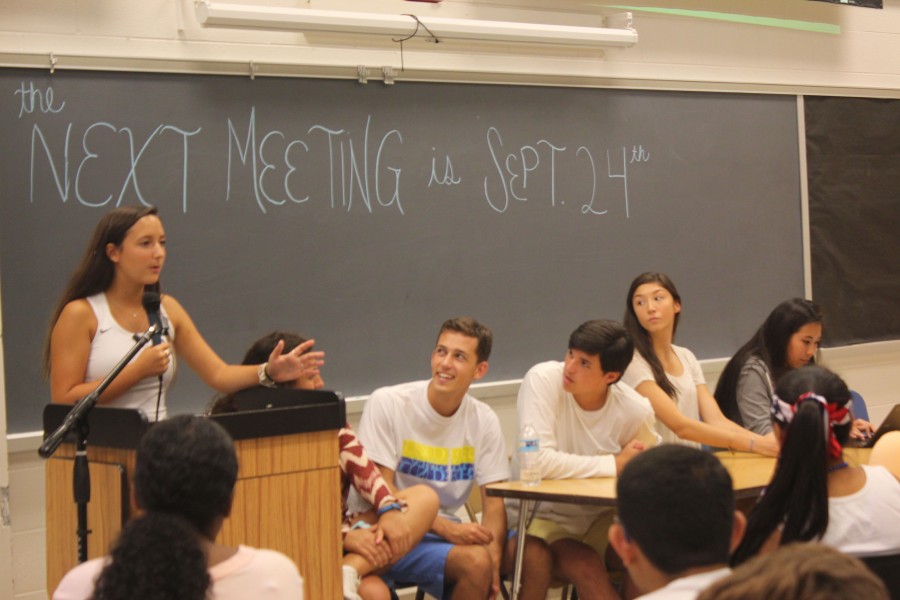Student Senate Aims to Incorporate ‘More Voices, Ideas’: Senators Keep Fellow Homeroom Students Informed
Photo courtesy of Jeremy Chang
SGA officers seniors Sophia Giavotto, Raz Moayed, Matthew Lipson, Sebastian Paez and Isabel J0rdan led the first Senate meeting Sept. 8.
September 29, 2015
In an effort to increase student participation and spirit, the SGA has brought back the Student Senate.
During homeroom in the first week of school, a video was scheduled to play, informing students of the Senate, and each homeroom class was instructed to elect a Senator and an alternate. The senators selected will represent their homerooms at SGA-held meetings twice a month.
“Basically, the SGA Student Senate works as a representative of the entire student body because in a school of 2,200 students, it is hard to get everybody’s voices heard,” sophomore class sponsor Evan Rosenthal said.
However, due to the fact that the video failed to show during homeroom, some students were unaware that the Senate even existed.
According to junior Leslie Chang, he wanted to be part of the Senate, but his homeroom never chose a Senator.
“There are definitely some students unaware, but we’re hoping teachers will inform them,” Rosenthal said.
The SGA introduced the Student Senate because some of the staff and students noticed that the SGA normally featured the same group of active students. Thus, the Senate aims to get more students involved in the day-to-day workings of CHS.
“We want a broad range of people from different groups, more student voices and new ideas,” Principal Joan Benz said.
According to junior Melis Tumanoglu, she volunteered for the Senate to increase her own involvement in the school and thinks that the Student Senate will allow the majority’s ideas to be heard.
The Senate will meet with the SGA once or twice a month during lunch and then report back to their homeroom and share information from the meetings with their teacher and fellow homeroom classmates.
According to Rosenthal, the more people who know about the Senate, the more effective it will be in getting information out to students.
The Senate has had favorable responses from many students as they are eager to see a change.
“As long as there is an easy and unbiased method of voting and as long as the people in their positions take the job seriously, I believe a Student Senate could help solve many problems at Churchill,” junior
Garrett Jacobs said. “One of the problems I believe the Student Senate could help solve would be students’ lack of awareness of current school events.”
The first Senate meeting ran smoothly with school SGA officers leading the discussion on improving Homecoming, and senators politely raising their hands to speak.
According to Rosenthal, the meeting was a constructive experience for everyone because students wanted a change in the school and were willing to be respectful in order to make it happen.


